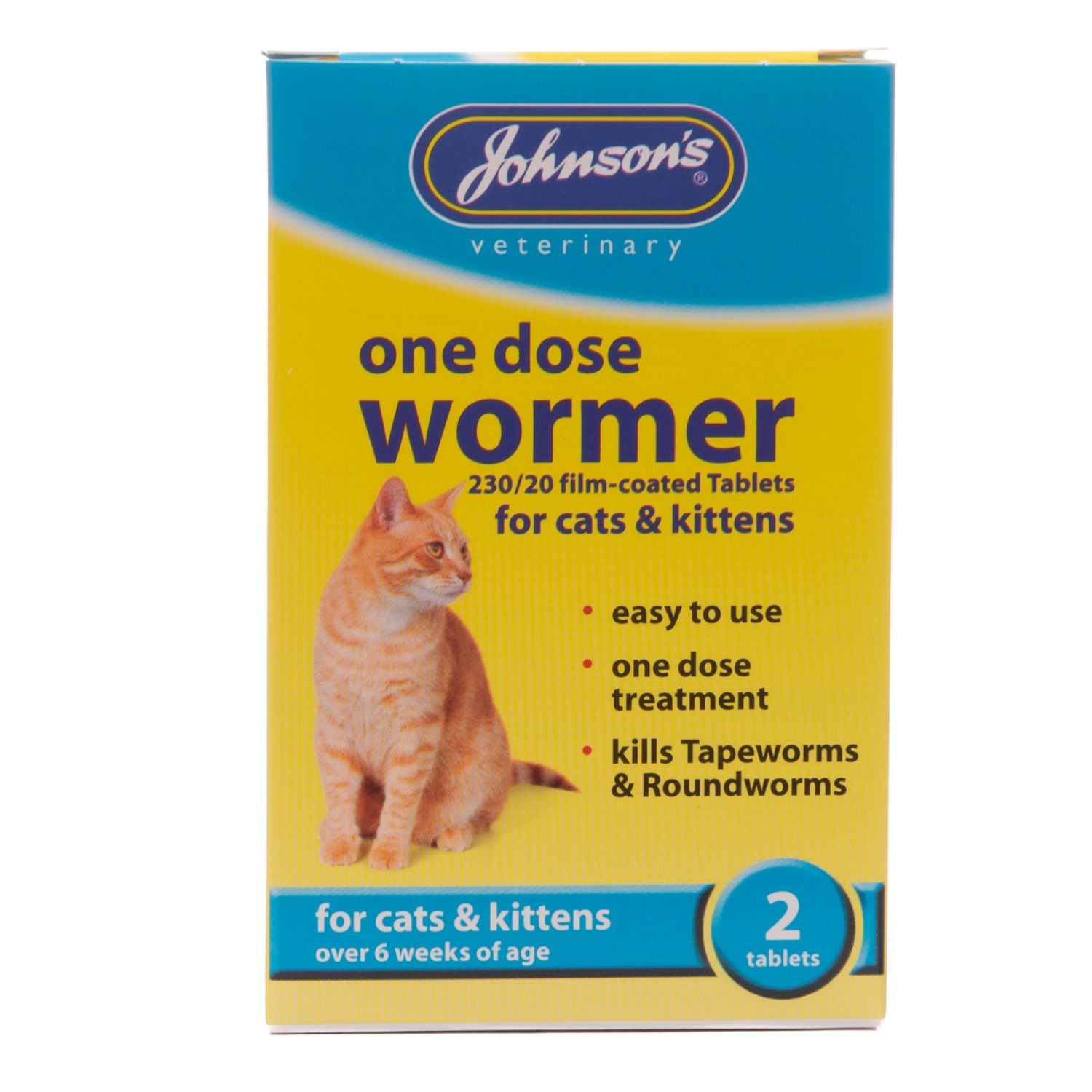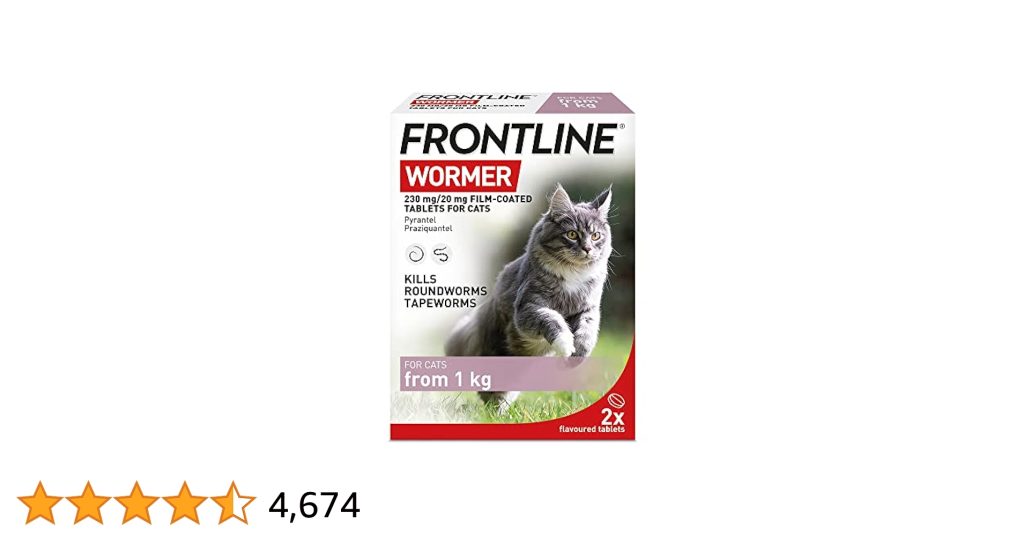Your cat is more than just a pet; they’re a beloved member of your family. So, when they show signs of discomfort or illness, you naturally want to help them feel better as quickly as possible.
One common issue that can affect your feline friend is worms. These pesky parasites can cause a range of problems, from a dull coat to a lack of energy. You’ve done your research and decided to use a cat wormer, but now you’re wondering, “How long does cat wormer take to work?
” In this post, we’ll explore the timeline for cat wormers, helping you understand when you can expect to see your cat bounce back to their playful self. Stay with us, and you’ll discover the key factors that influence how quickly these treatments can take effect, ensuring you’re fully informed and ready to help your furry friend feel their best.
Types Of Cat Wormers
Cat wormers come in different types. Each type works in its own way to remove worms from your cat’s body. Knowing these types helps choose the right treatment. It also helps understand how long the wormer might take to work.
Oral Medications
Oral medications are pills or liquids given by mouth. They reach the stomach and intestines quickly. These wormers start working fast, often within hours. They target common worms like roundworms and tapeworms. Giving the correct dose is important for full effect.
Topical Treatments
Topical treatments are liquids applied on the skin. Usually placed between the cat’s shoulder blades. The medicine absorbs through the skin into the bloodstream. It kills worms and other parasites over days. These treatments are easy to apply and less stressful for cats.
Injectable Options
Injectable wormers are given by a vet using a needle. This method delivers medicine directly into the body. It works quickly and is very effective for serious worm infections. Injection may be needed if oral or topical treatments don’t work well.
How Cat Wormers Work
Cat wormers are medicines designed to fight parasites inside your cat’s body. These parasites can cause health problems. Wormers work by attacking the worms, making your cat healthier and more comfortable. Understanding how they work helps you see why treatment is important and how fast it might work.
Targeting Different Worms
Cat wormers do not treat all worms the same way. Different medicines target specific types of worms. Some common worms include roundworms, tapeworms, and hookworms. The wormer you use depends on the type of parasite your cat has.
Some wormers kill one type of worm but not others. A vet can tell which wormer is best for your cat. Knowing the right wormer helps remove the right parasite quickly and safely.
Killing Vs. Expelling Parasites
Wormers work by either killing or expelling parasites. Some wormers kill the worms inside the cat’s body. The dead worms break down and get absorbed or passed out naturally. Other wormers cause the worms to loosen their grip.
Expelling wormers make worms move out through the cat’s stool. This helps clear the infection faster. Both methods aim to remove worms but work differently. The choice depends on the worm type and medicine used.
Timeframe For Wormer Effectiveness
The timeframe for a cat wormer to work varies based on many factors. Understanding how quickly the medicine takes effect helps pet owners manage expectations. It also guides in monitoring the cat’s health during treatment.
Wormers usually start to kill worms soon after administration. The total time to clear the infection depends on the worm type and the product used. Some medicines act fast, while others take several days.
Initial Relief Timeline
Most cat wormers begin working within 24 to 48 hours. Some products show effects in just a few hours. Typically, worms start to die and pass through the stool during this time.
Complete removal of all worms may take up to a week. Follow the instructions carefully for best results. Repeat doses might be necessary to clear all parasites.
Factors Influencing Speed
- Type of worm: Roundworms, tapeworms, or hookworms react differently.
- Cat’s age and health: Younger or weaker cats may respond slower.
- Wormer type: Some medications work faster than others.
- Dose accuracy: Proper dosing ensures quicker and better results.
- Severity of infestation: Heavy worm loads take more time to clear.
Signs Of Improvement
Look for less vomiting or diarrhea within a few days. The cat’s appetite and energy often improve as worms die off.
Worms may be visible in feces soon after treatment. This shows the medicine is working. Keep monitoring your cat and consult a vet if symptoms persist.

Credit: pet-supermarket.co.uk
Common Worm Types In Cats
Understanding the common worm types in cats is key to knowing how cat wormer works and how quickly you might see results. Each type of worm affects your feline friend differently, and the medication’s effectiveness can vary. Let’s look at the main culprits you should watch for in your cat’s health.
Roundworms
Roundworms are the most common intestinal parasites in cats. They look like spaghetti strands and live in the intestines, stealing nutrients from your cat’s food. If your cat has roundworms, you might notice a potbellied appearance or vomiting. Most cat wormers start killing roundworms within 24 hours, but it can take a few days for all of them to clear out.
Tapeworms
Tapeworms are flat and segmented, often visible near your cat’s anus or in their feces. They usually come from fleas your cat might have swallowed during grooming. Tapeworms can cause itching and irritation around the tail. Unlike roundworms, tapeworms may take a little longer to clear after treatment, sometimes up to a week. Have you checked your cat’s bedding for flea presence? That’s often where the cycle continues.
Hookworms
Hookworms attach to the lining of your cat’s intestines and feed on blood. This can cause anemia, weakness, and dark, tarry stools. They’re less common than roundworms but more serious. Cat wormers often kill hookworms quickly, but severe cases might need follow-up treatment. You should watch your cat closely for signs of fatigue or pale gums during recovery.
Whipworms
Whipworms are less common in cats but still worth knowing about. They burrow into the intestinal wall and cause diarrhea and weight loss. Detecting whipworms can be tricky because symptoms overlap with other illnesses. Treatment usually takes longer, and your vet might recommend multiple doses. Have you ever noticed persistent digestive issues that didn’t clear up with initial treatment? Whipworms might be why.
When To See A Vet
Knowing when to see a vet after giving your cat wormer is crucial. While many cats respond well to treatment, some may need professional care to avoid complications. Understanding the warning signs can save your cat from prolonged discomfort or serious health issues.
Persistent Symptoms
If your cat continues to show signs of worms after the expected treatment period, it’s time to consult a vet. Symptoms like ongoing diarrhea, vomiting, or visible worms in the stool beyond a week should not be ignored.
Sometimes, worms can be resistant to certain medications or your cat may have a different type of parasite. A vet can perform tests to identify the specific issue and suggest an alternative treatment.
Side Effects To Watch For
Most cat wormers are safe, but side effects can happen. If your cat shows signs of allergic reactions such as swelling, difficulty breathing, or severe lethargy, seek veterinary help immediately.
Other side effects to monitor include persistent vomiting, loss of appetite, or unusual behavior changes after administering the wormer. These could indicate that the medication isn’t agreeing with your cat or that an underlying problem exists.
Have you noticed any unusual reactions in your cat after treatment? Prompt veterinary advice can make a big difference in recovery and comfort.

Credit: www.wynnstay.co.uk
Preventing Future Worm Infestations
Preventing future worm infestations is just as important as treating an existing one. Worms can easily return if you don’t take steps to stop their spread. You have the power to protect your cat by creating a routine and environment that discourages these parasites from coming back.
Regular Deworming Schedule
Keeping a consistent deworming schedule is crucial. Talk to your vet about how often your cat needs treatment based on their age, lifestyle, and risk factors. Some cats might need deworming every three months, while others less frequently.
Setting reminders can help you stay on track. Think about it—have you ever missed a dose because it slipped your mind? A regular schedule reduces the chance of reinfestation and keeps your cat healthy year-round.
Hygiene And Environment Control
Worm eggs and larvae often hide in your cat’s environment. Cleaning litter boxes daily and washing bedding regularly can stop these parasites from spreading. Pay special attention to outdoor areas if your cat roams outside.
Also, consider controlling pests like fleas, which can carry tapeworm larvae. Do you clean your cat’s play and rest areas often enough? A clean environment is your first defense against worms.
Diet And Lifestyle Tips
Feeding your cat a balanced diet strengthens their immune system, making it harder for worms to take hold. Avoid raw or undercooked meat, which can carry parasite eggs.
Keeping your cat indoors or supervising outdoor play reduces exposure to infected prey or contaminated soil. Have you noticed your cat hunting mice or birds? Limiting this behavior can lower worm risks significantly.

Credit: www.petconnection.ie
Frequently Asked Questions
How Long Does Cat Wormer Take To Start Working?
Cat wormer typically starts working within 24 to 48 hours after administration. Effects vary by product and worm type. Some products may require multiple doses for complete elimination. Always follow your vet’s instructions for best results.
When Will My Cat Show Improvement After Worming?
Most cats show improvement in symptoms like appetite and energy within 2 to 3 days after worming. Complete recovery depends on worm severity and treatment type. Persistent symptoms require a vet check-up.
Can Cat Wormer Kill All Types Of Worms Instantly?
No, cat wormers target specific worm types and may not kill all instantly. Some worms require repeated doses or different medications. Consult your vet for the best treatment plan.
How To Know If The Wormer Is Effective In Cats?
Effectiveness is seen through reduced symptoms and absence of worms in feces within a week. A follow-up vet visit helps confirm worm clearance. Persistent worms may need additional treatment.
Conclusion
Cat wormer usually starts working within a day or two. Some treatments may take longer, up to a week. Always follow the instructions on the product label. Watch your cat closely for any changes or side effects. Keep your home clean to prevent re-infection.
Regular worming helps keep your cat healthy and happy. Consult your vet if symptoms continue or worsen. Treating worms early protects your cat and your family. Simple steps make a big difference in your cat’s health.

